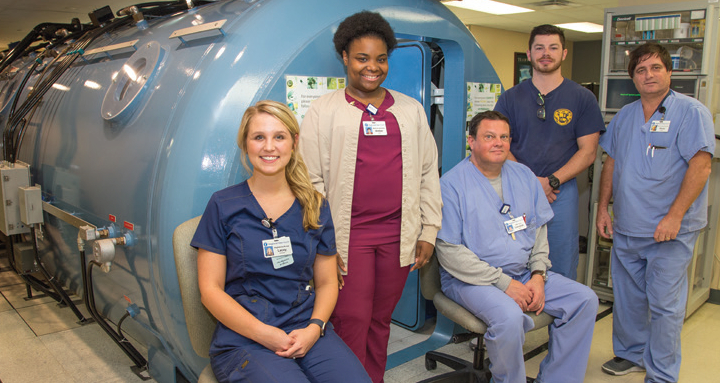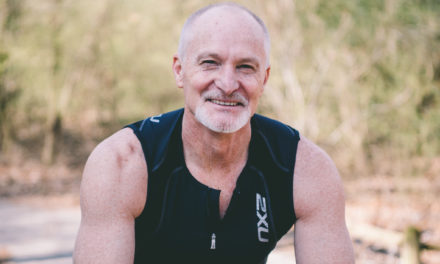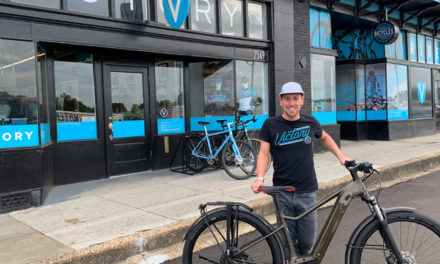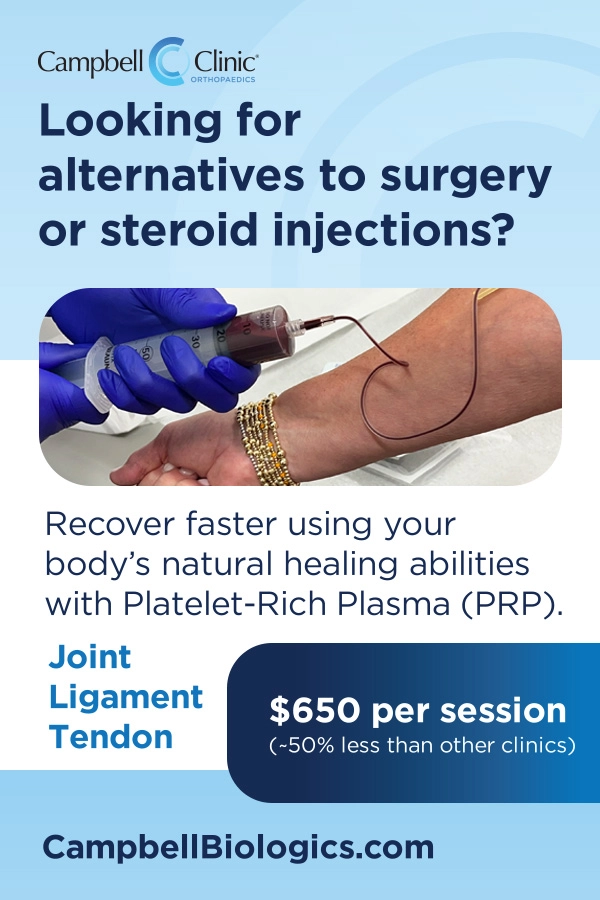For serious wounds, it often takes more than ointment and a bandage to heal.
That is especially true for diabetic patients. Poor circulation and nerve damage caused by the disease can create a double-edged sword, making people both more susceptible to wounds and less likely to heal on their own.
That’s where the comprehensive approach of Regional One Health’s Wound Care Center can be a game-changer. Expert clinicians and high-tech tools, including the state’s only multi-place Hyperbaric Oxygen Therapy chamber, combine to treat the whole patient—not just their injury.
Wound Care Center Manager Bud Rannou says that is essential for patients with diabetic wounds, including foot ulcers. “These wounds don’t have just one cause, so they need a multidisciplinary treatment approach,” Rannou says. “We develop treatment plans based not only on the patient’s physical needs, but their emotional and social needs as well.”
Rannou explains why diabetics are at risk for wounds on their feet and lower legs.
Diabetes causes high levels of glucose in the blood, which can damage blood vessels over time. As plaque builds up and blocks arteries and capillaries, blood doesn’t flow as well to the lower extremities. The condition also damages nerves, which means a patient could cut or injure their foot or leg and not recognize the severity.
Without rich oxygenated blood flowing to the lower extremities, the body doesn’t heal itself as easily. Wounds get worse and worse, leading to complications, infection and even amputation.
The Wound Care Center works with a patient’s medical team to break that cycle.
Hyperbaric Oxygen Therapy is one option the team deploys when a wound doesn’t respond to other treatments. Regional One Health is one of just a handful of locations in the region where this therapy—best known for treating decompression sickness in scuba divers—is available.
During a treatment, patients wear special all-cotton clothing and a clear, lightweight hood. They sit or lie down in a chamber that looks like a submarine, and then breathe in 100% oxygen after the chamber is pressurized. The pressure on the body is the same as if it was sitting at 45 feet underwater. Each treatment lasts about two hours, and patients can read, listen to music, talk, or nap during their sessions.
Typically, patients have 30 to 40 treatments. They are treated every day, Monday-Friday.
Rannou says the process sparks the body’s own healing powers.
Wounds need oxygen in order to heal, he explains, but the air we breathe is just 21% oxygen. When patients breathe in 100% oxygen under pressure, more oxygen dissolves in the bloodstream and reaches the wound.
The fact that the oxygen in the chamber is pressurized further assists with healing by encouraging the growth of blood vessels in wounds. That increases the number of white blood cells in the wound, which fights infection and promotes healing.
“It has benefits in terms of repairing soft tissue damage, relieving pain, improving infections, and creating an environment that promotes healing,” Rannou says.
True to the Wound Care Center’s multidisciplinary approach, Hyperbaric Oxygen Therapy is used alongside other approaches. For diabetic patients, this can include standard wound care as well as efforts to offload pressure from the wound, improve nutrition, lose weight, and control blood sugar.
“We work with every patient as an individual,” Rannou says. “Our team is highly trained and experienced to evaluate and care for wounds, and we use that knowledge to design plans that are based on each person’s unique needs.”
If you have diabetes and are struggling with foot or leg ulcers, ask your doctor if Hyperbaric Oxygen Therapy and the Wound Care Center can help.
There are 14 accepted indications reimbursed by Medicare, and most insurance providers recognize some but not all of these indications. Depending on your diagnosis, all insurance providers require pre-authorization for medical necessity before approval.
For appointments or more information, call 901.545.8999.
Located at: 890 Madison Avenue
Regionalonehealth.org/wound-care/










